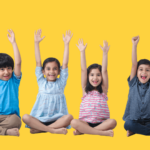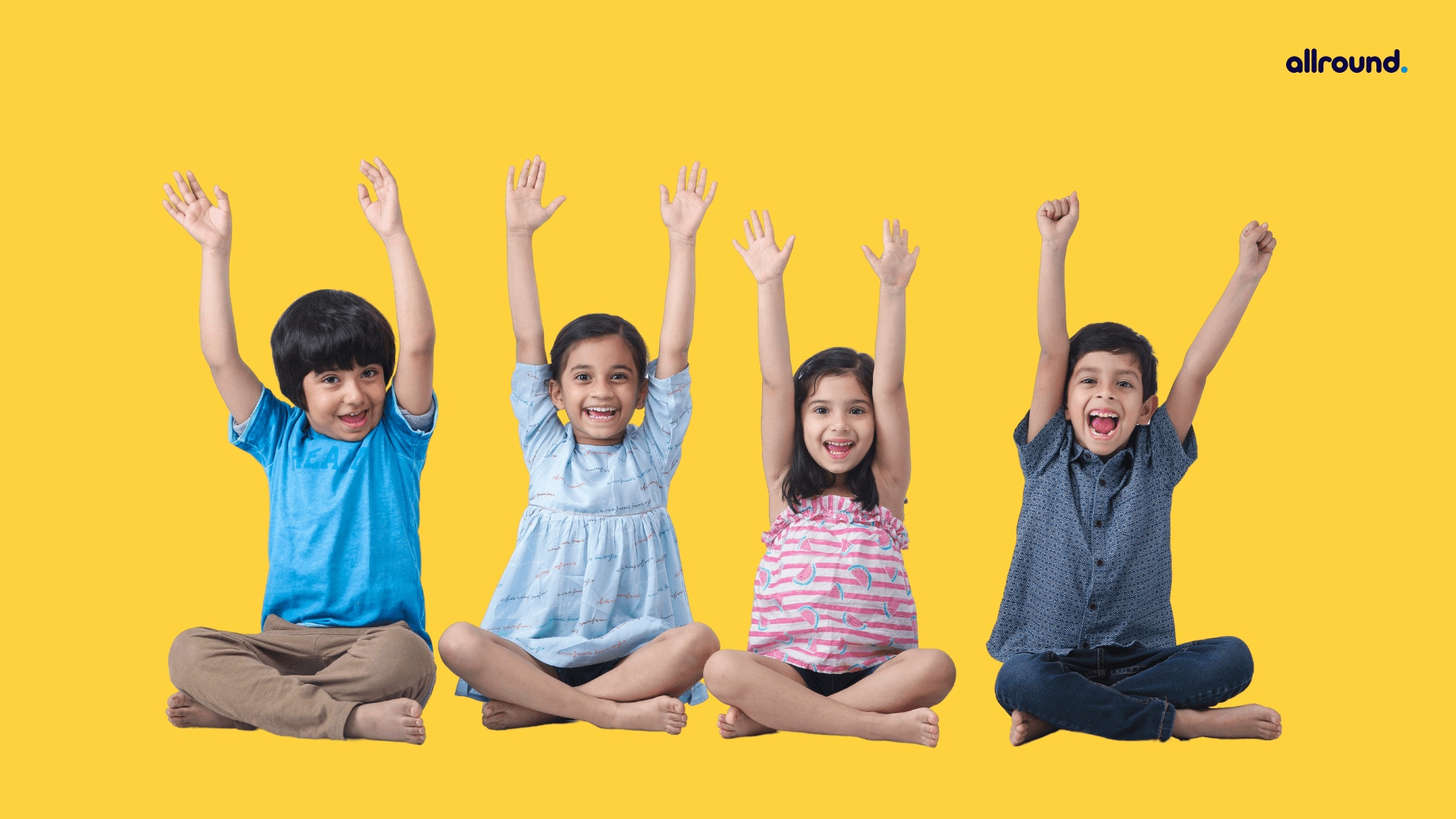How Can Kids Develop Social Emotional Skills?6 min read
Social and emotional development affects the life of a kid in many ways. Kids develop confidence, build friendships, and balance their skills while learning social and emotional skills. Social development in early childhood is a significant part of an individual’s general well-being, prosperity, and joy all through their life. Social development is firmly connected to your child’s intellectual and emotional development. Together, these skills help build the foundation for creating relations with others, adapting to stressful situations, and having numerous abilities. Proper social development is required when a child begins to go to school. Parents can help kids in building social development in the children. Let us know more about this term.
Contents
What are Social and Emotional Skills?
Social and emotional skills are essential for connecting with others. These skills help the kids manage their emotions and build healthy relationships with society. In addition, kids develop empathy towards others and are better human beings, with compassion and generosity a significant traits of their personality. Developing skills at a young age is crucial to maintaining healthy relationships. As soon as the children interact with them, they must understand their feelings. Social and emotional skills help the kids in:
- Gaining confidence
- Making friends and keeping them for life-long
- Learning social norms
- Making appropriate decisions
- Learn strengths and weaknesses
- Resolving conflicts
- Gain awareness of others’ feelings
- Manage stress and anxiety
- Children can perform all these activities efficiently when they have better social and emotional growth
Benefits of Socio-Emotional Skills
There are multiple benefits of learning socio-emotional skills. Let us find some of them.
Increases Academic Success
Studies exhibit that creating more desirable social and emotional competencies improves students’ performance. For example, when students hear and answer in the classroom, they can effortlessly ace their academics, have great experiences, and enhance their skills and abilities. Social and emotional skills also improve youths’ attitudes toward school, increasing their attendance and encouraging them to learn.
Improves Self-Awareness and Confidence
Social and emotional skills encourage a developmental shift whereby students pass from relying on outdoor sources for a route about how to act towards trusting in themselves and their values. This system lets children construct their self-confidence and trust in themselves. Social and emotional skills will also increase youths’ self-awareness by educating them to be aware of their behavior.
Increases Empathy for Others
Empathy, the capability to recognize the emotions and standpoint of every other person, is viewed as a core social skill. Yet, it is frequently unnoticed in the usual faculty curriculum. A social-emotional skill encourages children to think about the views and emotions of their peers, teachers, and parents. Practicing empathy is a gateway to building different necessary competencies such as war resolution, healthful conversation, and kindness closer to others. Parents can encourage their kids to have compassion for others.
Helps Develop Relationship Construction Skills
When children analyze to put themselves in others’ shoes and practice empathy, they become more understanding and more knowledgeable in constructing and keeping relationships. This consists of understanding how to be an excellent friend, recognize others’ emotions, and be attractive in fighting rebellion—learning social and emotional also teaches formative years how to work appropriately with others and practice teamwork. These are lifetime competencies that will advantage students in the schoolroom and beyond.
Decreases Emotional Distress
Learning social and emotional skills applications affect students’ cognitive abilities and help them balance their emotions effectively. Further, it improves their potential to self-regulate and offers them a higher potential to manipulate and cope with their feelings. These advantages are vital in the modern social climate, as the pandemic has precipitated more significant intellectual fitness troubles and social disconnection in students.
Encourages Advantageous Social behavior
According to recent research, students display extra high-quality social behavior with peers, teachers, mothers, and fathers when the social and emotional skills are carried out in the classroom.
Once youngsters are geared up with abilities to manage their feelings and practice self-regulation, they have fewer possibilities to have aggressive behaviors. In addition, when students construct teamwork and relationships skills, they experience extra assurance throughout social interactions. And when students analyze to work correctly with one another, they can take care of interpersonal hostilities respectfully and productively.
How Can Parents Develop Social and Emotional Skills in Children?
Parents can use multiple ways to develop social and emotional skills in their kids. There are plenty of skills that are highly important for kids. Here are some of the ways to build them.
Model Appropriate Behavior
Observation plays an imperative position in how youngsters research new things. For example, suppose your baby sees you sharing, expressing gratitude, being helpful, and sharing feelings. In that case, your kid will have a proper stable grasp of interacting with different human beings at home.
You can get these responses in your family with your kids and different family participants. Every time you say “please” or “thank you,” you demonstrate how you would like your kids to behave.
Reinforce Good Behavior
Most importantly, provide a reward when your adolescents exhibit accurate social behaviors. Helping your youngsters sense desirable about themselves additionally performs a necessary position in growing an experience of empathy and emotional competence. Furthermore, teenagers will naturally produce more benefits and be thoughtful by increasing fantastic local weather where kids can share their feelings.
Teach Empathy
Parents can also enhance empathy and construct emotional feelings by encouraging their kids to assume how different human beings feel. Start by inquiring about your kid’s personal feelings and asking about occasions in your kid’s life. For example, “How did you experience when you misplaced your toy?” “How did that story make you feel?”
Once teenagers become experts at expressing their emotional reactions, they ask how different humans can feel. For example, “How do you suppose you felt when you took away the toy you used to take part in?”
Teach Cooperation
Cooperation is one ability that has advantages in the entire development of an individual. Giving your little one the possibility to engage and play with different children is one of the high-quality approaches to educating them on how to relate to others. While your infant might also discover taking part with friends is irritating at times, given that children regularly lack staying power and the potential to share, things will progressively start to enhance with age and experience.
As kids play and interact, they additionally commence increasing social problem-solving skills. Early tries may contain lots of arguments and warfare with siblings and peers; however, eventually, youngsters analyze how to negotiate and compromise with different children.
These are the various ways parents can assist their children in growing their social and emotional skills. These skills once again are helpful throughout the life of a child. Therefore parents must get involved in developing the skills of children.
Conclusion
Every child demands healthy social and economic growth. It is as important as the cognitive or academic growth of a child. Every parent must pay some head towards their children’s social and economic development to maintain proper decoration.





